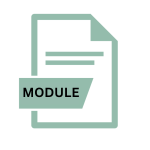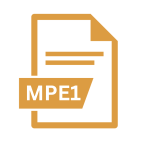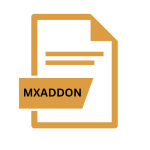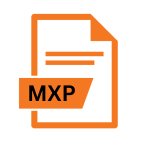.AFZPLUG File Extension

AfterShot Pro Plugin Archive
| Developer | Corel |
| Popularity | |
| Category | Plugin Files |
| Format | .AFZPLUG |
| Cross Platform | Update Soon |
What is an AFZPLUG file?
.AFZPLUG files serve as archives specifically designed for AfterShot Pro plugins. These files encapsulate additional functionalities, enhancing the capabilities of the core AfterShot Pro software.
Through plugins, users can customize their editing workflows, access specialized tools, and streamline various tasks, ranging from advanced retouching to specialized effects and batch processing.
More Information.
AfterShot Pro, initially released by Bibble Labs and later acquired by Corel, was conceived as a versatile solution for photographers seeking efficient and flexible post-processing tools.
As the software evolved, so did the demand for specialized functionalities beyond its core feature set. Consequently, the concept of plugins gained prominence, enabling developers to augment AfterShot Pro with niche capabilities tailored to specific workflows or creative styles.
The .AFZPLUG file extension emerged as the designated format for packaging these plugins, offering a convenient means of distribution and installation.
This standardized approach simplified the process for both developers, who could focus on creating innovative plugins, and end-users, who could seamlessly integrate new features into their editing environment.
Origin Of This File.
The emergence of the .AFZPLUG file extension can be traced back to the development of AfterShot Pro and its commitment to fostering a vibrant ecosystem of third-party extensions.
Corel, the company behind AfterShot Pro, recognized the value of modularity and extensibility in catering to diverse user needs and preferences.
Thus, the .AFZPLUG format was established as a standardized container for distributing and installing AfterShot Pro plugins.
File Structure Technical Specification.
.AFZPLUG files adhere to a structured format optimized for plugin deployment within AfterShot Pro.
While the internal architecture may vary depending on the complexity of the plugin, certain elements are typically present:
- Manifest File: A metadata file specifying essential information about the plugin, including its name, version, author, dependencies, and compatibility with AfterShot Pro versions.
- Plugin Components: The core functionality of the plugin, comprising scripts, libraries, resources, and configuration files necessary for its operation within AfterShot Pro.
- Documentation: Optional but highly recommended, documentation files provide users with insights into the plugin’s features, usage instructions, and troubleshooting tips.
- License Information: Licensing terms and conditions governing the use of the plugin, ensuring compliance with intellectual property rights and usage restrictions.
By encapsulating these components within a single .AFZPLUG file, developers can deliver a cohesive and easily deployable package to end-users, simplifying the installation process and minimizing compatibility issues.
How to Convert the File?
Converting .AFZPLUG files typically involves unpacking the archive to access its constituent components.
While no dedicated conversion tools exist for .AFZPLUG files, users can utilize file archiving utilities such as WinRAR, 7-Zip, or WinZip to extract the contents of the archive.
Once extracted, users can explore the plugin’s components and, if necessary, manipulate or customize them to suit their requirements.
Advantages And Disadvantages.
Advantages:
- Modularity: Plugins packaged in .AFZPLUG format enable modular expansion of AfterShot Pro, empowering users to tailor their editing environment to suit their specific needs.
- Ease of Deployment: The standardized format streamlines the installation process, allowing users to effortlessly add new functionalities to AfterShot Pro without intricate manual configurations.
- Community Contribution: By fostering a vibrant ecosystem of third-party developers, .AFZPLUG files facilitate collaborative innovation, with developers creating and sharing plugins to address emerging demands and trends in photography.
Disadvantages:
- Dependency Management: Plugins may rely on external libraries or components, necessitating careful management of dependencies to ensure compatibility and seamless integration.
- Security Risks: Like any executable file, plugins packaged in .AFZPLUG format pose potential security risks if obtained from untrustworthy sources. Users should exercise caution and verify the authenticity of plugins before installation.
- Versioning Challenges: Compatibility issues may arise when using plugins designed for different versions of AfterShot Pro, requiring developers to maintain multiple versions or users to upgrade their software accordingly.
How to Open AFZPLUG?
Open In Windows
- After downloading the .AFZPLUG file, users can right-click on the file and select an archiving utility such as WinRAR or 7-Zip to extract its contents. Once extracted, users can follow the plugin’s documentation for installation instructions within AfterShot Pro.
Open In Linux
- Linux users can utilize command-line tools such as tar or unzip to extract the contents of the .AFZPLUG file. Once extracted, users can follow the installation instructions specified by the plugin’s documentation to integrate it into AfterShot Pro.
Open In MAC
- Similar to Windows, macOS users can employ archiving utilities like The Unarchiver or Keka to extract the .AFZPLUG file. After extraction, users can proceed with installing the plugin in AfterShot Pro as per the provided instructions.













